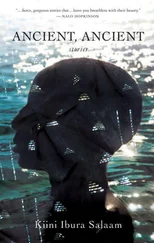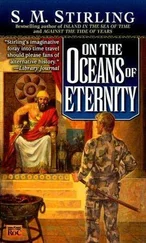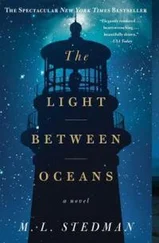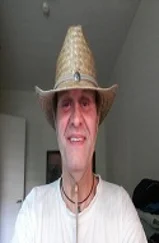Fragments of light cast across the cosmos reached the blue hood of her blue car. When she was in high school, she rode with her parents to the cemetery to see the stone. The stone signaled that they’d given up, finally.
One night, she snuck into the cemetery with a friend and as they walked, they passed the stone and Leah said, “That grave is empty.”
The night cracked. Beyond the trees, a train groaned, its mouth open, slithering between the bent branches.
Leah Shepherd stayed late looking at things on the Internet she shouldn’t. She couldn’t afford the Internet at her apartment, so she would stay late at work sometimes and if she found something she liked, she would carefully make sure that no one was in the building, no matter how late it was and she took care of herself.
And the boy sunk to the bottom of the sea and the slow churn of the ancient ocean turned his bones to dust and turned the dust to stone and over the silent turning of the bottom of the ocean, no light fell and his name was lost among the shards of bone and shell.
The neighborhood boys were sitting on the curb in the bend in the street, setting off Black Cats and throwing rocks at one another. They wrestled on the pavement, howling and laughing, scraping and bruising each other, skin peeling in leaves of pale pink and lakes of red. Blistered fingers and bruises welling. “Fat fuck.” “Fat fuck face. Fag.” Picking teeth, the boys howling.
“Hey,” Leah said, sidling up, “I heard your yard was haunted.” The neighborhood boys craned their lumpy necks at her and lolled their red eyes. Their faces erupted. “Listen, listen, listen.” This little girl drove them crazy. What was she? Like ten or something. And that little baby brother, always crying. But this they listened to because they were very bored. They’d broken already that summer everything that they could get their hands on. And so, summer being what it was, they listened.
“How do you know?”
“I can’t tell you. This girl said.”
“Girl? I thought you liked boys.”
“Fag.”
“Fag’s for a guy that sucks dicks. She’s not a fag. She’s a lezzie.”
“Listen,” undisturbed and eager, unsure what they meant, but not wanting to betray ignorance, she insisted and they began to sway and circle. So they listened. The boys. Howling and howling. And crackling cracks in the curbs. “That there was a girl who lived in your house and she died because this guy she loved died in the war and she killed herself and her parents buried her in the side-yard and put that pond in.” A hole and a hole and a hole. “No, listen, listen, it really happened. The girl told me it was the truth and then swore on her mother’s grave and showed me a bone.” They bellowed cackles at holes.
“Okay, so what? Okay, so show us.”
And Leah led the boys in the gate of the walled garden where it was quiet. A slight breeze slithered. Though summer, bare legs and arms goose-fleshed. Impatient, the boys akimbo and contrapposto . Lulled by the silence there in the garden behind the wall. In that moment, the possibility of a secret seemed real. They listened to her. Flemish bond, ten feet high, discolored by lichens and moss. Brick paths around the green pool of water. In the corners, planters with dry and dying plants. Brown leaves. Fallen petals. Broken stalks. And the pool’s glaucous eye, lidless, idle. What odd portents had it been quietly privy to? The bending branches of old oak and elm trees outside the garden bent curiously over the walls, cut the sunlight into suggestion of light and with dry voice, spoke.
“Her body,” Leah said and the boys listened and the world listened. “Her body was buried here. This is where her father, heartbroken, buried her remains. I didn’t tell you, but she shot herself, taking her father’s gun from his desk while he was at work. She held it up to her eye and pulled the trigger. There was nothing left of her face. Her eyes and brains and nose were everywhere. Her father came home and found her and wept for his daughter. He felt so guilty, like he’d pulled the trigger. He carried her down here to the yard and buried her and built this around her.” A loose brick moved at her touch and the boys crowded around. Clouds of starlings passed by above. The boys pulled up the brick. With their fingertips, prying.
The sound of the metal gate behind them slamming the brick wall sent shudders through them and high squeals and standing there was Jacob in his powder-blue overalls just like a baby would wear. “I told you to stay home,” she said.
“You said we’d play.” The boys began to laugh. Something escaped from the garden. One boy noticed a nest in a pear tree, reached up in the sudden crowing of changing voices and tossed it down, dashing a blue egg to the interlocked bricks. Blue against yellow-green moss and lichen. She screamed at Jacob and he keened and the boys began to wander away, tongues aflame with glee. The little baby in his saddle oxfords. She began to follow but Jacob reached for her arm and she pushed him down, only registering for a moment the tide of pleasure that this brought and he fell rear first into the slosh and muck of the reflecting pool. Rotten water. The boys erupted and Jacob was silent, still, staring at Leah. “How could you do that to your own brother,” they said. “You’re a fucking bitch.” They began to cackle. They touched their own crotches and called her a slut and were gone.
“Please don’t tell mother what I did. I’m so sorry. Please don’t tell.” Jacob said nothing. He walked home wet and cold.
The next day, their mother sang. “Rise and shine and give God the glory.” Leah and Jacob rose and wandered downstairs, wobbling on still sleeping legs like the risen dead, hungry. They ate. Crispy bacon and blackened biscuits. They drank milk from colorful plastic cups. They’d all forgotten the spanking for the ruined clothes, still wet with reflecting pool water. “Get dressed for church. Come on now.”
Clothes out for them the night before. A dress with a square collar and small slacks and a clip-on tie. They wriggled in like worms wriggling into a corpse.
“I don’t want to go,” Jacob said. “Please.” He pouted and stormed down the steps and out the front door. She just sat downstairs in the chair in the living room, watching him pout down the front walk through the window, like he did every Sunday, happy to see him gone.
“Okay, let’s go. Where’s your brother?” She pointed at the door. Her mother opened it and began yelling for her son. “Jacob! Goddamn.” She looked at her watch. “Goddamn.” Her father came down the steps, pulling tie tight, and looked at the women of his house and said Mrs. Shepherd had to teach Sunday school and serve communion and could not be late. She asked her husband to find where Jacob was hiding and meet them at church and, prodding Leah along, left. Leah kept expecting to see him sitting by his favorite tree, on the curb with his round face in his hands, but they didn’t see him and Mrs. Shepherd continued to curse to herself. Leah almost said something to her mother, told her something, but didn’t. They walked on.
In her Sunday school class, Leah learned about the Tower of Babel. The children sat around the room in hard wood chairs and listened to the Sunday school teacher talk, and Leah slipped into a reverie raveled out and it was only when everyone began to get up and walk out that she returned to the room, looked around confused. She looked into the room where the younger children sat with the pictures of Joseph they colored, his bright coat in waxy rainbow scribble, but he wasn’t in there. In the sanctuary, she sat next to her mother who kept looking around for Mr. Shepherd, but he didn’t come. The service started and they sang hymns and listened to verses and her mother got up and walked to the front to take the trays of bread and grape juice and circulate them through the congregation and then she returned to her seat and the minister gave a short sermon on something, but Leah had faded away again, thinking of something else, her eyes open but seeing only what her mind fluttered in front of her and then the organ droned and everyone stood and walked out after the minister, and Leah and her mother walked home and Mr. Shepherd was standing outside and as they walked up he said, “Don’t worry—”
Читать дальше












